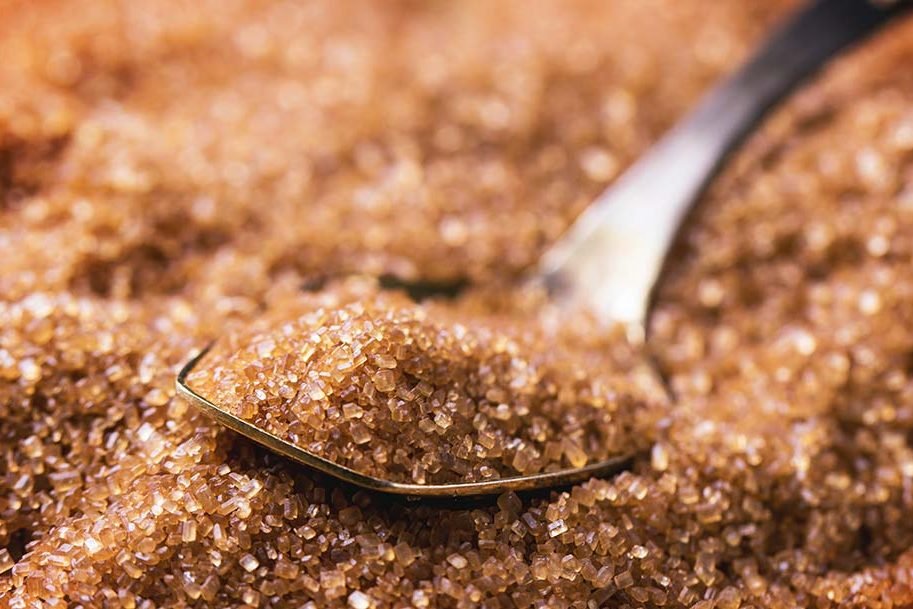Is brown sugar healthier than white sugar? Are there big differences between brown and brown sugar? If I want to watch my weight, should I use brown sugar or sugar substitutes? Are sugar substitutes carcinogenic? Many questions are asked these days around sugar, and how to do it differently, when the sweet taste is so loved by all of us, but we want at the same time not to burden our body with many calories. Let's finally learn some truths about sugar and its substitutes in more detail!
White Sugar: White sugar, also known as sucrose, is produced either from sugar beets or sugarcane. The raw brown sugar is purified through washing, redissolving, boiling, recrystallization, and centrifugation, so that in the end we have white sugar. Therefore, after the crystals have been formed, they are further processed to completely remove the molasses and leave only the white crystals. Depending on the thickness of its crystals, there are crystalline, fine, and powdered forms. 100 grams of white sugar contain 387 kcal, 99.98% carbohydrates, and 0.02% water.
Brown Sugar: Brown sugar consists of sucrose crystals with molasses residues from sugarcane or is produced by re-adding molasses to white sugar. Commercial brown sugar contains 10% molasses by weight. Molasses is a source of B-complex vitamins, manganese, phosphorus, and zinc.
Black Sugar: Black sugar is produced from the first crystallization of sugarcane and yields, after processing, 70% by weight white sugar. Essentially, it contains more molasses than brown sugar, hence more vitamins and minerals than the latter. More specifically, 100 grams of black sugar contain 377 kcal, 97.3% carbohydrates, and 1.77% water and minerals such as iron, calcium, magnesium, potassium, and sodium.
Sugar Substitutes: There are both natural and artificial sugar substitutes. Natural substitutes have some caloric value (with the exception of stevia), while artificial ones do not. Among the natural substitutes, we find fructose, stevia, and polyols (sorbitol, xylitol, mannitol, isomalt, lactitol, maltitol), whereas among the artificial substitutes, the most well-known are aspartame, saccharin, sucralose (Splenda), acesulfame potassium, cyclamic acid, thaumatin, and neotame. Essentially, sweetening agents are natural or synthetic compounds that provide a sense of sweetness and have no or minimal nutritional value relative to the intensity of sweetness. The evaluation of the sweetening power of each substance, natural or synthetic, is based on sugar, which is arbitrarily scored at 100.
What should we ultimately prefer from all the above? Regarding sugar, whether white, brown, or black, the calories are almost similar, with the only difference being the small amounts of vitamins and minerals contained in brown and black sugar. However, to benefit from these, we would need to consume a large quantity of sugar, which, of course, is not recommended.
So, is it ultimately better to use some sugar substitute? Sugar substitutes either have no calories at all or have the same as sugar (e.g., fructose), but because they have a greater sweetening power, they essentially add almost no calories. Moreover, they do not cause tooth decay and do not affect glucose metabolism, so they are considered acceptable for diabetics. Over time, there have been studies that suggested that some of them (aspartame, saccharin, acesulfame potassium, cyclamic acid) cause cancer, premature birth (aspartame), others of them (polyols, aspartame) certain gastrointestinal disorders, and fructose specifically an increase in blood lipid levels. Nevertheless, the European Food Safety Authority (EFSA) comes to reassure consumers, arguing that if the daily acceptable dose for each substitute is not exceeded, they do not pose a health risk.
It should be noted that individuals with phenylketonuria are prohibited from consuming aspartame, as aspartame breaks down into methanol and phenylalanine, an amino acid that individuals with phenylketonuria cannot metabolize.
What conclusion do we draw? Sugar is not forbidden by anyone, not even diabetics, as long as it is consumed in moderation and preferably, accompanying a meal rich in dietary fibers, so that glucose levels do not increase abruptly. Certainly, if we had to choose between white and brown or black sugar, we would consume the latter two.
As for the substitutes, they are a very good choice for those on a diet. However, studies show that sweeteners have not been proven to reduce food intake, as it gives the impression that a larger quantity of food with sweeteners can be consumed, ultimately increasing the intake of calories and fat. Additionally, another study shows that when the sweet taste is not accompanied by nutrients, metabolism changes (since metabolites are not stored), and the consumption of these foods increases the feeling of hunger and leads to addiction over time and a desire for even greater consumption.
So, either use what nature generously offers us, always in moderation, or what science has created for our benefit (according to recommendations), but also with a small suspicion in the back of our minds…







